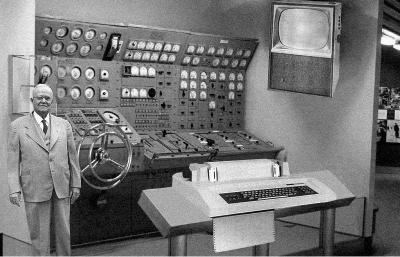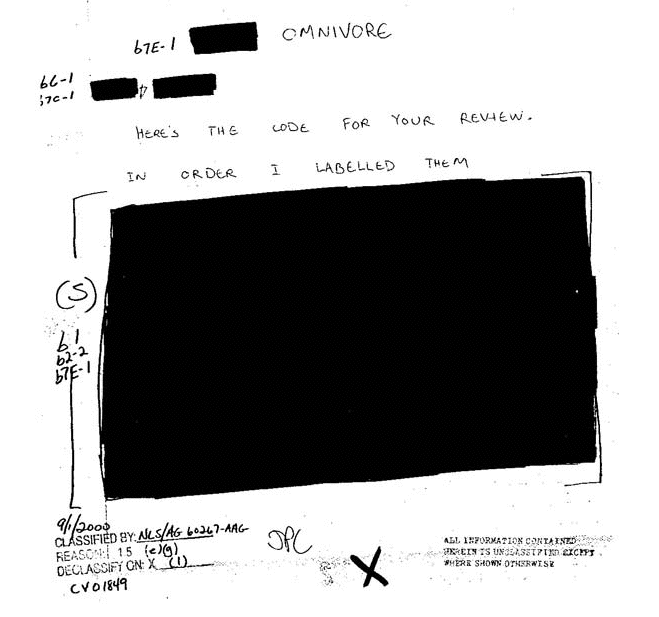
Scientists from RAND Corporation have created this model to illustrate how a “home computer” could look in the year 2004. However the needed technology will not be economically feasible for the average home. Also the scientists readily admit that the computer will require not yet invented technology to actually work, but 50 years from now scientific progress is expected to solve these problems. With teletype interface and the Fortran language, the computer will be easy to use.
I noticed this intriguing image and caption up in a display in our labs and thanks to St?©fan Sinclair traced it to Matt Kirschenbaum’s blog where a comment then took me to Urban Legends Reference Pages: Inboxer Rebellion (Does Not Compute). Pity it’s a hoax – why wasn’t Rand thinking about the home computer back then? If you look closely the teleprinter is distorted and the suit is too short for the display, but the caption is so good it should be true.
